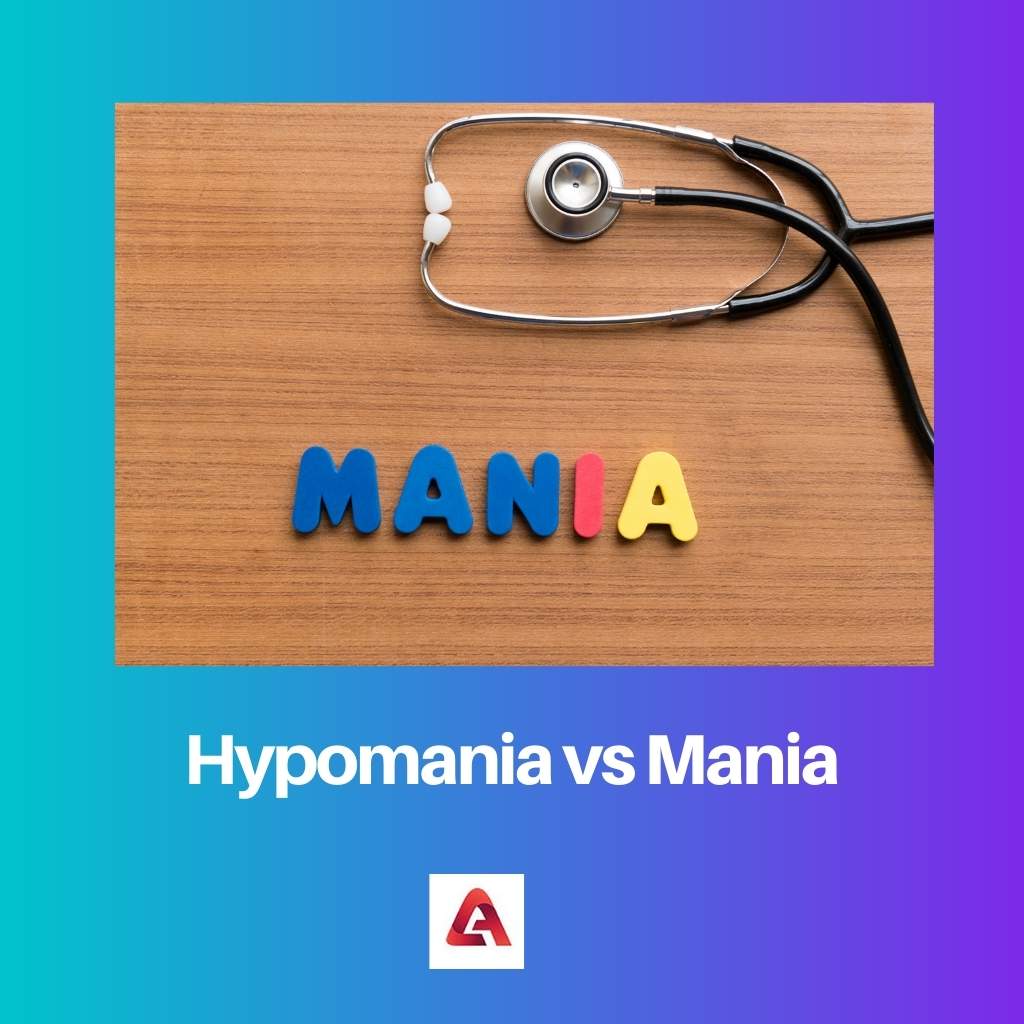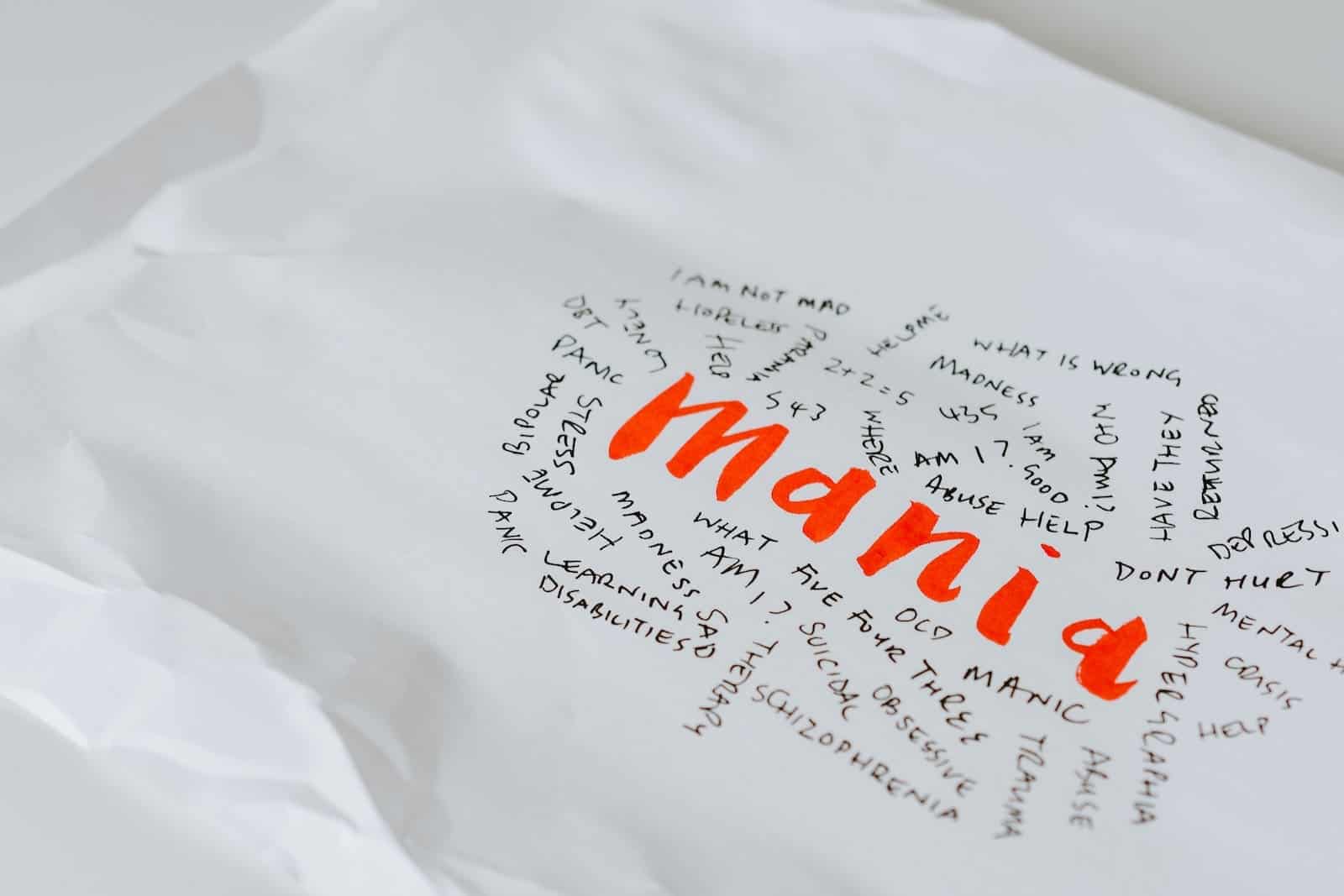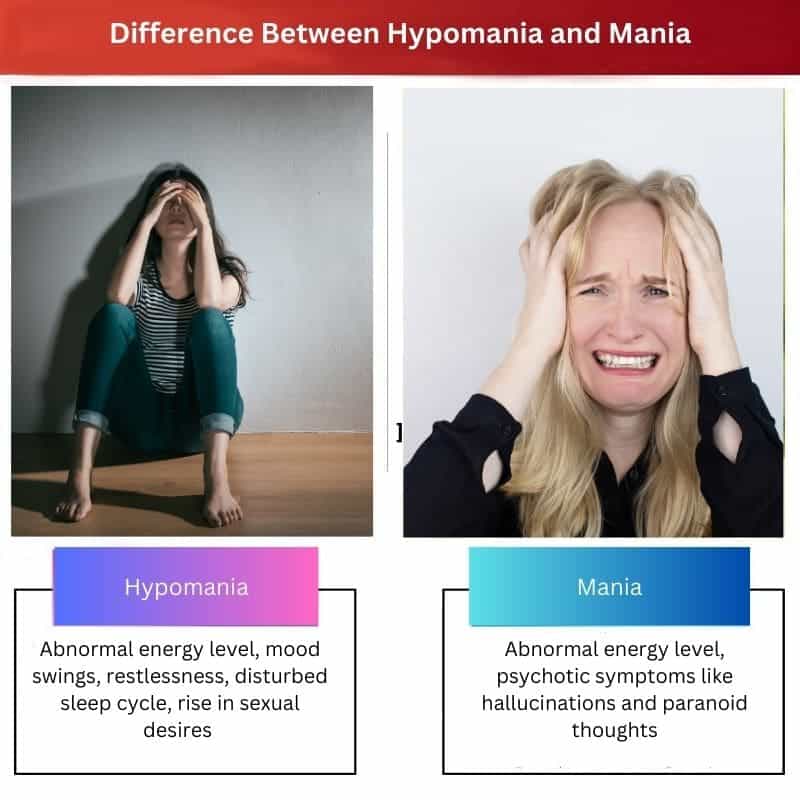Mental illness is a condition that affects the way a person thinks, feels, functions, and behaves.
There are types of mental illnesses which commonly include clinical depression, anxiety disorder, bipolar disorder, dementia, schizophrenia, eating disorders, excessive compulsive disorder, paranoia, and many more.
Two commonly experienced forms are hypomania and mania.
Key Takeaways
- Hypomania involves elevated mood and increased energy but does not severely impact daily functioning.
- Mania presents with more intense symptoms, such as extreme euphoria or irritability, and can significantly impair daily life.
- Manic episodes require hospitalization, while hypomanic episodes do not.
Hypomania vs Mania
Hypomania is a milder form of mania characterized by a period of elevated, expansive or irritable mood and increased energy or activity that lasts for at least 4 days. Mania is a more severe form of the same disorder. It is characterized by a period of abnormally and persistently elevated, expansive or irritable mood, with increased energy, activity, talkativeness and impulsivity.

Hypomania is a symptom of bipolar disorder. It arises from an extreme level of stress or excessive use of drugs or alcohol products. It is sometimes experienced by lack of sleep or insomnia also.
The patients face an abnormal rise or fall in the energy level of the body.
Mania is a severe or extended form of hypomania. The symptoms of mania are intense. Patients experience abnormal levels of energy, restlessness, and mood swings in the body.
The sleep cycle is hampered, and they experience a racing mind and excessively pounding heart. Some patients are even likely to cause self-harm.
Comparison Table
| Parameters of comparison | Hypomania | Mania |
|---|---|---|
| Cause | Insomnia and use of drugs | Insomnia, excessive indulgence in drugs and alcohol, and medication |
| Symptoms | Abnormal energy level, mood swings, restlessness, disturbed sleep cycle, rise in sexual desires | Abnormal energy level, psychotic symptoms like hallucinations and paranoid thoughts |
| Severity | Mild to moderate (does not require hospitalization) | Severe or Intense (may require hospitalization) |
| Treatment | Healthy lifestyle with exercise, healthy diet and medication | Medications (mood stabilizers, antipsychotics) and psychotherapy |
| Prevention | By avoiding skipping meals, ensuring proper sleep, following a healthy lifestyle, and by keeping track of the emotions | By reducing stress, taking the medications regularly, and being under the supervision of a doctor |
What is Hypomania?
Hypomania is an abnormal and persistent hype in the energy which disrupts the entire functioning of the body, mood, behaviour, thinking, and comprehension ability.
It is a common symptom of bipolar disorder. The patients experience unusual anxiety, irritability, excitement, restlessness, unable to focus, confusion, and lack of sleep. The symptoms can last from days to several weeks.
Certain hypomanic behaviour includes talking relentlessly, spending recklessly, increasing or demanding inappropriate sexual desires, landing into an argument in a public place, and sudden pride or self-esteem oneself.
All these random behaviour can be coupled with extreme mood swings.
Though the exact cause of Hypomania is not known, generally, patients have a history of medication which have side-effect or excessive drug addiction, alcohol consumption, irregular sleep patterns, and uncontrollable stress burden.
Patients who experience depression with hypomania are seen to develop bipolar disorder in the later stages or if left untreated.
The symptoms of Hypomania appear mild when compared with Mania, but it is advised to be under the constant guidance of a doctor.
The treatment would include medication, regular exercise, inculcating a healthy lifestyle, and promoting productive thoughts. Keeping track of the emotions, thoughts, and symptoms is essential.

What is Mania?
Mania is an intense condition of abnormal energy, uncontrollable mood, racing heart and thoughts, hallucinations, delusions, and paranoid thoughts.
The patients also experience depression. Some patients can even reach the edge of self-harm and suicide.
Mania is not just a mental illness but also a mental emergency, as the patient can even face shortness of breath, cardiac arrest, and bleeding. The symptoms last from weeks to several months.
Several behaviour characteristics make it easier to identify Mania, like extreme irregularity in the sleep cycle, sudden bursts of energy, which in turn brings exaggerated productivity, or even extreme multitasking, racing thoughts that bring distraction, inner chaos, and confusion, and attempts of attack on self or others.
There can be several causes of Mania, like a brain tumour or injury, dementia, encephalitis, uncontrollable stress, trauma or abuse, lack of sleep, the side effect of medications, and an excessive addiction to drugs and alcohol.
The patient should be under the constant guidance of a professional and follow the medications and psychotherapy advised. Incorporating a healthy lifestyle with a healthy diet and exercise can also bring changes.
Cultivating meditation to calm the mind is effective. Avoid skipping meals and follow a well-structured sleep plan to maintain sanity.

Main Differences Between Hypomania and Mania
- Hypomania is a milder version of Mania, while Mania is an intense mental illness condition.
- Hypomania does not require hospitalization, while Mania can be fatal and may require hospitalization.
- A Hypomania episode lasts hours, while a Mania episode may last for weeks.
- Hypomania may or may not be a symptom of bipolar 2 disorder, while Mania can be a symptom of bipolar 1 disorder.
- Hypomania patients experience restlessness, mood swings, irritability, and other confusions, while Mania patients can experience hallucinations, delusions or suicidal thoughts.
- Hypomania patients do not need psychotherapy and may or may not undergo medications as prescribed by the doctor, while Mania patients should undergo medications and psychotherapy.

- https://ajp.psychiatryonline.org/doi/abs/10.1176/appi.ajp.163.2.232
- https://www.tandfonline.com/doi/abs/10.1080/15622970510029885

The comparison between hypomania and mania provides valuable insights into the differences and severity of these conditions. It’s important for individuals to seek appropriate treatment and prevention methods based on their symptoms and experiences.
The detailed comparison between hypomania and mania provides an in-depth understanding of these mental health conditions. It’s essential to prioritize mental health education and facilitate access to supportive resources and care for affected individuals.
Indeed, a comprehensive understanding of hypomania and mania is essential for individuals, families, and communities to support, guide, and provide proper care for those experiencing these mental health challenges.
The clear distinctions between hypomania and mania and the detailed information about their symptoms and causes are essential for increasing awareness and understanding of these conditions. It’s crucial to prioritize mental health education and support.
I completely agree, promoting mental health education and destigmatizing these conditions is crucial in order to provide proper care and support for individuals dealing with hypomania and mania.
Absolutely, raising awareness about mental health conditions like hypomania and mania is essential for providing individuals with the necessary resources and support to manage their symptoms effectively.
Mental illnesses are varied and their impact in a person’s daily life can be significant. It’s essential to understand the differences between milder forms of mental illnesses and more severe ones, such as hypomania and mania. It’s crucial to seek medical guidance when experiencing these symptoms.
Indeed, understanding the symptoms and characteristics of hypomania and mania is necessary to provide proper care and support for individuals dealing with these conditions.
Understanding the symptoms and differences between hypomania and mania is vital for recognizing and addressing these conditions effectively. It’s important to promote empathy, education, and support for individuals experiencing these mental health challenges.
Absolutely, creating a supportive and compassionate environment for individuals dealing with hypomania and mania is crucial for improving mental health awareness and care.
The comparison table and detailed descriptions of hypomania and mania provide a comprehensive understanding of these conditions. It’s vital to educate and support individuals who may be experiencing these symptoms and guide them towards proper care and treatment.
Absolutely, education and awareness play a significant role in recognizing the signs and symptoms of hypomania and mania, and in facilitating timely interventions and support.
The detailed descriptions of hypomania and mania provide an insightful perspective on these mental health conditions. It’s crucial to emphasize the importance of early recognition, intervention, and supportive care for individuals experiencing these symptoms.
Absolutely, early awareness and intervention can significantly impact the outcomes for individuals dealing with hypomania and mania. Prioritizing mental health education and support is paramount.
The comprehensive explanation of hypomania and mania provides valuable insights into these mental health conditions. It’s essential to encourage open discussions and understanding of these challenges in order to support individuals in need.
The detailed information about the symptoms, causes, and treatment options for hypomania and mania are enlightening. It’s crucial to increase awareness and understanding of these conditions in order to provide better support and care for affected individuals.
Absolutely, creating awareness about mental health conditions like hypomania and mania can help in early identification and intervention, leading to improved outcomes for individuals dealing with these challenges.
The clear explanations of hypomania and mania offer valuable knowledge about these mental health conditions. It’s essential to promote open discussions, empathy, and proactive support for those experiencing these challenges.
Absolutely, fostering an environment of understanding, empathy, and support is essential for individuals dealing with hypomania and mania. Prioritizing mental health awareness and care is crucial.